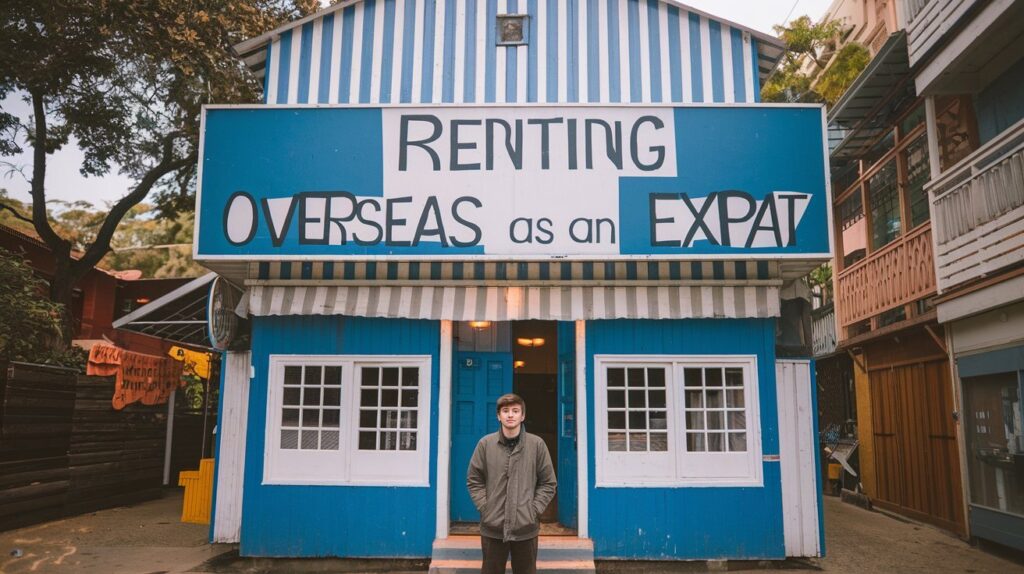Moving abroad? Renting seems like the obvious choice. It’s flexible, cheaper upfront than buying, and gives you breathing room while you figure out whether you actually like the neighborhood you’ve landed in. Sounds straightforward, right? Well, not always. Once you scratch beneath the surface, you start running into oddities – rules that make sense locally but leave newcomers scratching their heads.
This isn’t just about rent payments and square footage. The moment you become an expat, the ground shifts a little under your feet. You’re dealing with landlords who have their own cultural expectations, leases that look nothing like what you signed back home, and deposits that can drain your bank account in one go. And let’s not forget the bigger picture – financial buffers, and yes, even health protection like international insurance plans – because sometimes the problems you face overseas have nothing to do with the apartment at all.
Lease Norms Aren’t Universal
The first trap most people fall into? Assuming a lease works the same everywhere. It doesn’t. Some countries want you tied in for years; others roll over month-to-month. In Berlin, long-term contracts with strict rent control are common. In Japan, you might meet the strange concept of “key money,” which is basically a non-refundable gift to the landlord just for letting you sign.
A friend of mine once told me about her move to Madrid. She expected the standard 12-month lease she was used to at home. Instead, the agent casually slid across a contract for three years. Three years! She ended up signing, but it completely changed how she thought about her “temporary” stay. The moral: read carefully, and if you don’t understand something, have a local or legal adviser explain it before you sign anything.
Deposits and Upfront Costs Can Sting
Another shocker: the size of deposits. Back home you might pay one month’s rent as a deposit. Abroad? Try two, sometimes three. And on top of that, they might want months of rent upfront too.
It adds up fast. I knew an expat in Singapore who budgeted for one month’s rent only to be asked for three months plus agency fees before she got the keys. Her carefully planned furniture budget? Gone in one afternoon. And getting the deposit back later isn’t always smooth either – rules about what landlords can deduct vary wildly.
The UK government has a useful page on buying property abroad that outlines what to check for, but not every country has something that clear. You’ll need to dig, ask around, and maybe even accept that what feels “unfair” to you is simply the norm there.
Landlord Expectations: Prepare for Culture Shock
Here’s where it gets even weirder. “Unfurnished” doesn’t always mean what you think it does. In some countries it literally means empty – no fridge, no stove, sometimes not even light fixtures. So, unless you fancy cooking by candlelight, budget for appliances.
Then there’s the relationship side. In some places, landlords are distant. You sign, you pay, and you never see them again. In others, they’ll swing by unannounced to “check in.” That can feel invasive if you’re not used to it, but perfectly normal to them.
And wait until move-out day. In Germany, repainting the entire flat in neutral colors before handing back the keys is often expected. In the US, you’d never dream of that – it’s considered “wear and tear.” These differences can leave you arguing over deposits you thought were safe. Better to know the rules early than to find out the hard way.
Timing Is Everything
Here’s something hardly anyone mentions: property rental markets have seasons. In university cities, try finding an apartment in September. Impossible. In holiday hotspots, summer rentals vanish or cost double.
If you can, time your arrival for the quieter months. Landlords are more flexible, and you’ll have more choice. If you can’t, think temporary. Serviced apartments, Airbnbs, or even a short sublet can give you breathing space until the rush dies down.
Websites like Expatica’s housing guides are gold for this – they break down how rental markets work in specific countries. Knowing when demand peaks can save you both money and stress.
It’s Not Just About the Apartment
Finally, let’s zoom out. Renting overseas isn’t just about four walls and a lease agreement. It’s about stability, security, and peace of mind. That means more than checking the plumbing works – it means having backups. Savings in case you lose your job. A plan if your landlord sells the property. And health coverage, because getting sick abroad without insurance is the quickest way to drain your bank account.
Sorting international insurance plans ahead of time makes a difference. It’s one less unknown when everything else already feels unfamiliar. Think of it as part of your rental checklist, right alongside paying deposits and setting up utilities.
Final Thoughts
Renting overseas can be exciting, even fun. But it’s rarely simple. The deposits are higher, the contracts stranger, the landlords different. You’ll make mistakes – it’s almost guaranteed. What matters is being aware of the quirks before you go all-in.
Because at the end of the day, you want your new apartment to feel like home, not like a financial trap. Do your homework, budget for surprises, and put a few safety nets in place. That way, when you finally turn the key and step inside, you can focus on living – not stressing.

